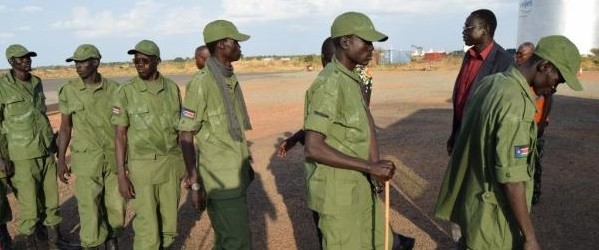Hundreds of fighters loyal to South Sudanese opposition leader Riek Machar have been transferred within neighbouring Democratic Republic of Congo for medical treatment by the U.N. peacekeeping mission there, according to an internal Congolese army report.
The report, dated Tuesday and seen by Reuters on Wednesday, is the first confirmation that so many armed men have crossed the border since Machar, South Sudan’s former vice-president, fled to Congo last month following fierce fighting in the capital, Juba.
Machar was picked up by the U.N. mission in Congo (MONUSCO) with a leg injury on Aug. 17 and evacuated to another part of the country before travelling for medical treatment to Sudan, where he has since remained.
The army report said that, beginning on Aug. 18, the mission organised three flights per day over three days from Dungu, some 75 km (45 miles) from the South Sudan border, to the eastern city of Goma, about 1,000 km to the south, for his fighters.
“About 500 fighters of (Riek Machar) have been evacuated and sent to Goma. Among them are the lightly, seriously and very seriously wounded who were treated by medical staff at the MONUSCO clinic in Dungu before evacuation to Goma,” it said.
U.N. spokesman Stephane Dujarric confirmed that the mission evacuated “above a hundred” of Machar’s wounded fighters for humanitarian reasons, and that the soldiers gave up their weapons before boarding U.N. helicopters.
“MONUSCO has evacuated some elements from the SPLA in opposition on humanitarian grounds so they can receive urgent medical assistance,” Dujarric said.
Government spokesman Lambert Mende told Reuters that Congo authorized MONUSCO to provide medical care to some Machar fighters who have crossed the border as long as they disarmed, but did not know how many.
He added that talks were ongoing with the South Sudanese government over what would happen to those fighters.
Photo: SPLM-IO soldiers arriving in Juba in April 2016 on flights organized by international backers of South Sudan’s peace agreement. Many of the men brought to Juba under the security arrangements of the peace deal were killed three months later in Juba.




